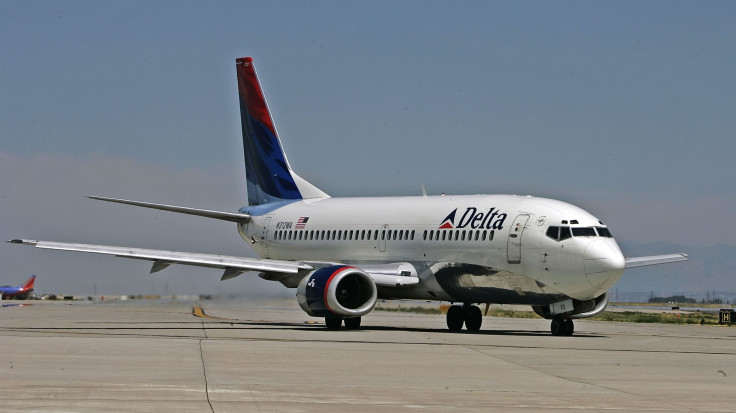Free Wi-Fi May Be Coming To Your Delta Flight

In recent years, most U.S. airlines have offered Wi-Fi on most of their flights. But in general, the service has been very expensive -- and not very fast.
Delta Air Lines (NYSE:DAL) wants to change that. Over the next two weeks, the airline giant will test free, fast Wi-Fi on about 55 domestic flights per day. (For comparison, it normally charges $16 for a day pass within North America.) Eventually, Delta hopes to roll out free Wi-Fi across its entire route network. But in doing so, it would at best match a service that rival JetBlue Airways(NASDAQ:JBLU) has been offering for years.
The pioneer in free Wi-Fi
JetBlue was relatively late to the inflight Wi-Fi game, rolling out its first broadband-equipped aircraft in late 2013. It waited that long because it wanted to ensure a great experience for customers. Rather than using the air-to-ground systems that were common in the U.S. at the time, JetBlue jumped straight to satellite-based Wi-Fi from Viasat (NASDAQ:VSAT), which offers significantly more bandwidth at a low cost.
By January 2017, JetBlue's entire fleet was equipped with the carrier's Fly-Fi service. Whereas other carriers charged a lot for Wi-Fi service to discourage use -- due to the modest amount of bandwidth available -- JetBlue was able to offer free Wi-Fi for everyone on flights within the continental U.S.
JetBlue and Viasat regularly boast that Fly-Fi provides internet speeds relatively comparable to what you would experience at home. Fly-Fi is even suitable for streaming video.
Delta is playing catch-up
The main drawback of Viasat's service is that until recently, the coverage barely extended beyond the continental U.S. With new satellites, Viasat expanded its range last year to include most of Central America and the Caribbean, as well as trans-Atlantic air corridors and -- through a joint venture -- Europe. A trio of next-generation satellites scheduled to launch in 2021 and 2022 will give Viasat near-global coverage.
By contrast, Gogo (NASDAQ:GOGO) already offers near-global Wi-Fi coverage, which has helped it win the business of Delta and many other carriers. Delta is in the midst of upgrading its fleet to Gogo's 2Ku satellite Wi-Fi, which can offer up to 400 megabits per second of bandwidth on each aircraft.
Some of these Gogo 2Ku-equipped planes will be used for the free Wi-Fi test over the next few weeks. Unlike JetBlue, Delta will not permit streaming applications on its test aircraft, but customers will have access to the rest of the web. The test program "is designed to understand customer experience preferences, system performance, customer feedback, and more," according to the company.
Delta has indicated that the goal is to make Wi-Fi free on every flight. However, that's not likely to happen anytime soon -- as highlighted by multiple references to the complexity of the project in Delta's announcement of the free Wi-Fi tests.
This rivalry is heating up
JetBlue and Delta are engaged in a bitter rivalry in Boston and New York. The stakes are set to rise further due to JetBlue's plan to expand to Europe, beginning with flights to London in 2021. So it's not surprising that Delta feels compelled to move toward free Wi-Fi. Otherwise, it would risk losing share to JetBlue in the coveted business travel market.
Even when Delta does offer free satellite Wi-Fi on its entire fleet, it still won't match the quality of JetBlue's service. For example, JetBlue already permits streaming, which Delta will block.
Furthermore, JetBlue is installing next-generation modems on its aircraft. This will boost the bandwidth available to as much as 1 gigabit per second -- 2.5 times what Gogo says its 2Ku systems can provide.
That said, Gogo's 2Ku satellite Wi-Fi should be adequate for business travelers trying to get work done on a flight. Ultimately, that's the most important thing for Delta from a customer-retention standpoint. The key question of how long it will take for Delta to make fast, free Wi-Fi a reality across its massive global route network remains unresolved, though.
This article originally appeared in the Motley Fool.
Adam Levine-Weinberg owns shares of Delta Air Lines and JetBlue Airways. The Motley Fool owns shares of and recommends Delta Air Lines. The Motley Fool recommends JetBlue Airways. The Motley Fool has a disclosure policy.





















